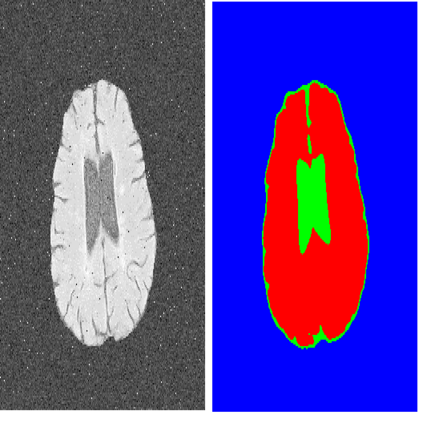Contrastive learning has shown great promise over annotation scarcity problems in the context of medical image segmentation. Existing approaches typically assume a balanced class distribution for both labeled and unlabeled medical images. However, medical image data in reality is commonly imbalanced (i.e., multi-class label imbalance), which naturally yields blurry contours and usually incorrectly labels rare objects. Moreover, it remains unclear whether all negative samples are equally negative. In this work, we present ACTION, an Anatomical-aware ConTrastive dIstillatiON framework, for semi-supervised medical image segmentation. Specifically, we first develop an iterative contrastive distillation algorithm by softly labeling the negatives rather than binary supervision between positive and negative pairs. We also capture more semantically similar features from the randomly chosen negative set compared to the positives to enforce the diversity of the sampled data. Second, we raise a more important question: Can we really handle imbalanced samples to yield better performance? Hence, the key innovation in ACTION is to learn global semantic relationship across the entire dataset and local anatomical features among the neighbouring pixels with minimal additional memory footprint. During the training, we introduce anatomical contrast by actively sampling a sparse set of hard negative pixels, which can generate smoother segmentation boundaries and more accurate predictions. Extensive experiments across two benchmark datasets and different unlabeled settings show that ACTION performs comparable or better than the current state-of-the-art supervised and semi-supervised methods. Our code and models will be publicly available.
翻译:对比性学习显示,在医学图像分割背景下,对说明短缺问题有巨大的希望。 现有方法通常假定标签和无标签医疗图像的平衡等级分布。 然而, 现实中的医学图像数据通常不平衡( 多类标签不平衡), 自然产生模糊的轮廓, 通常错误地标记稀有对象。 此外, 仍然不清楚所有负面样本是否都同样是负面的。 在这项工作中, 我们介绍Action, 一个对解剖- 觉悟的 Contrastatition dstillatiON 框架, 用于半监督的医学图像分割。 具体来说, 我们首先开发一个互动的对比蒸馏算法, 以软标签为底部标签, 而不是对正对正对对对对对双的二进制监督。 我们还从随机选择的负数组中捕捉到更相似的特征, 与执行抽样数据多样性的正数。 其次, 我们提出一个更重要的问题: 我们能否真正处理不平衡的样本来产生更好的业绩? 因此, 行动中的关键创新是学习全球的语系关系, 在整个数据配置和本地的比较性模型中, 进行更精确的对比性分析,, 以更精确的比我们更精确的缩缩缩缩缩的缩缩缩缩的缩的缩的缩的缩的缩略。



